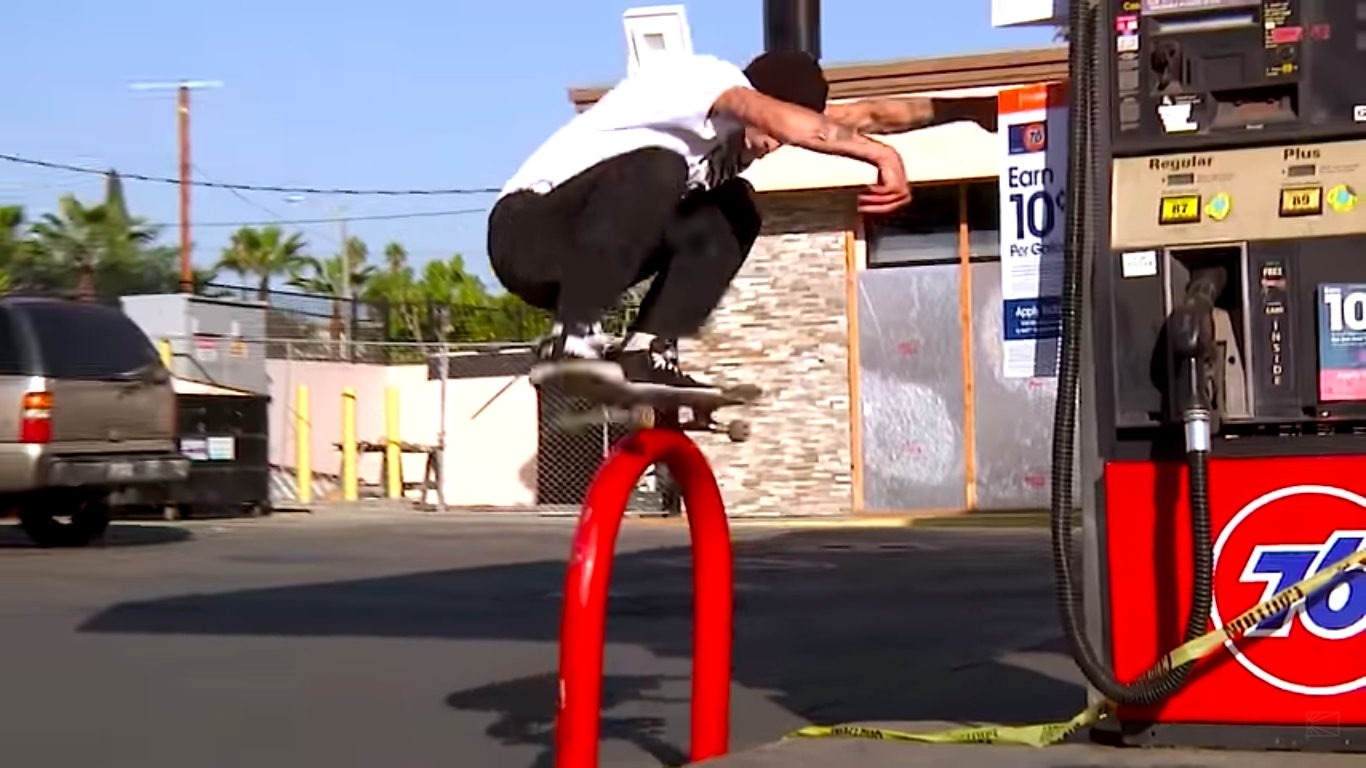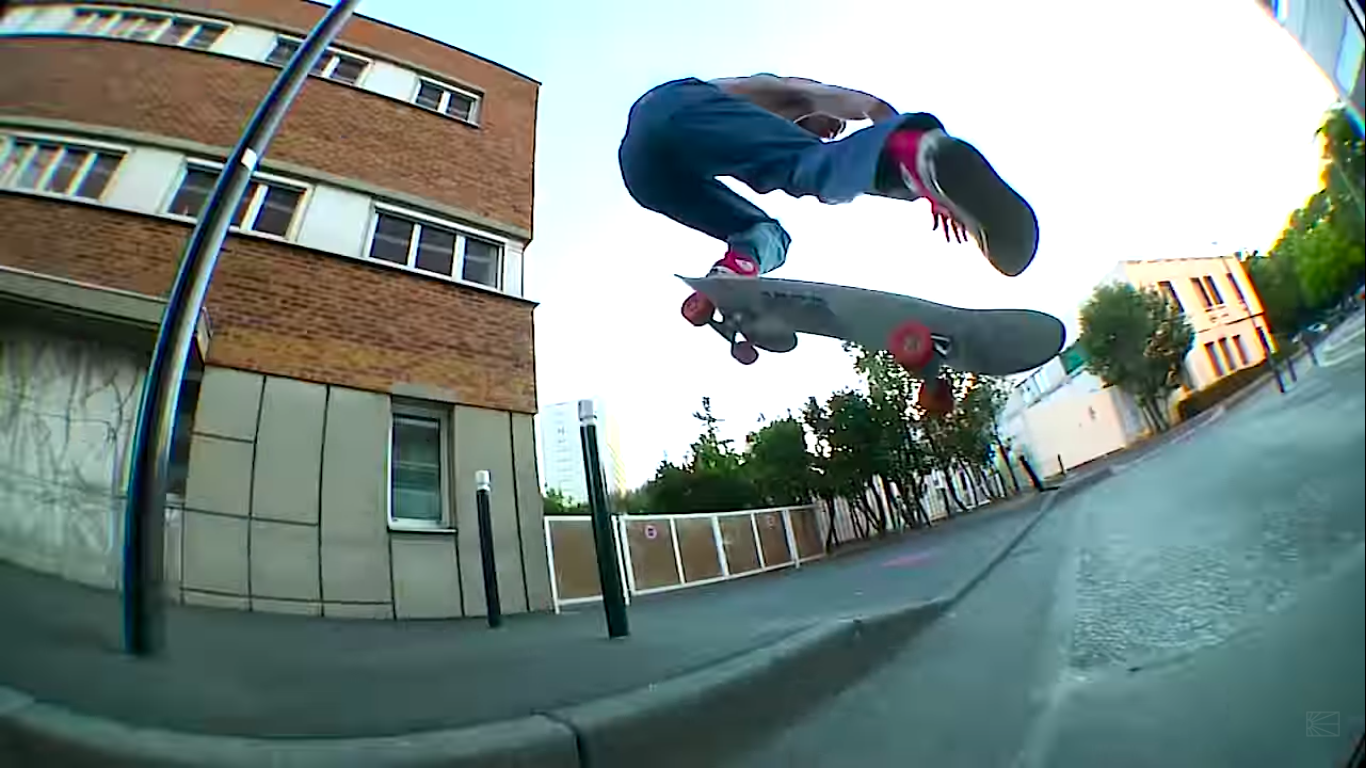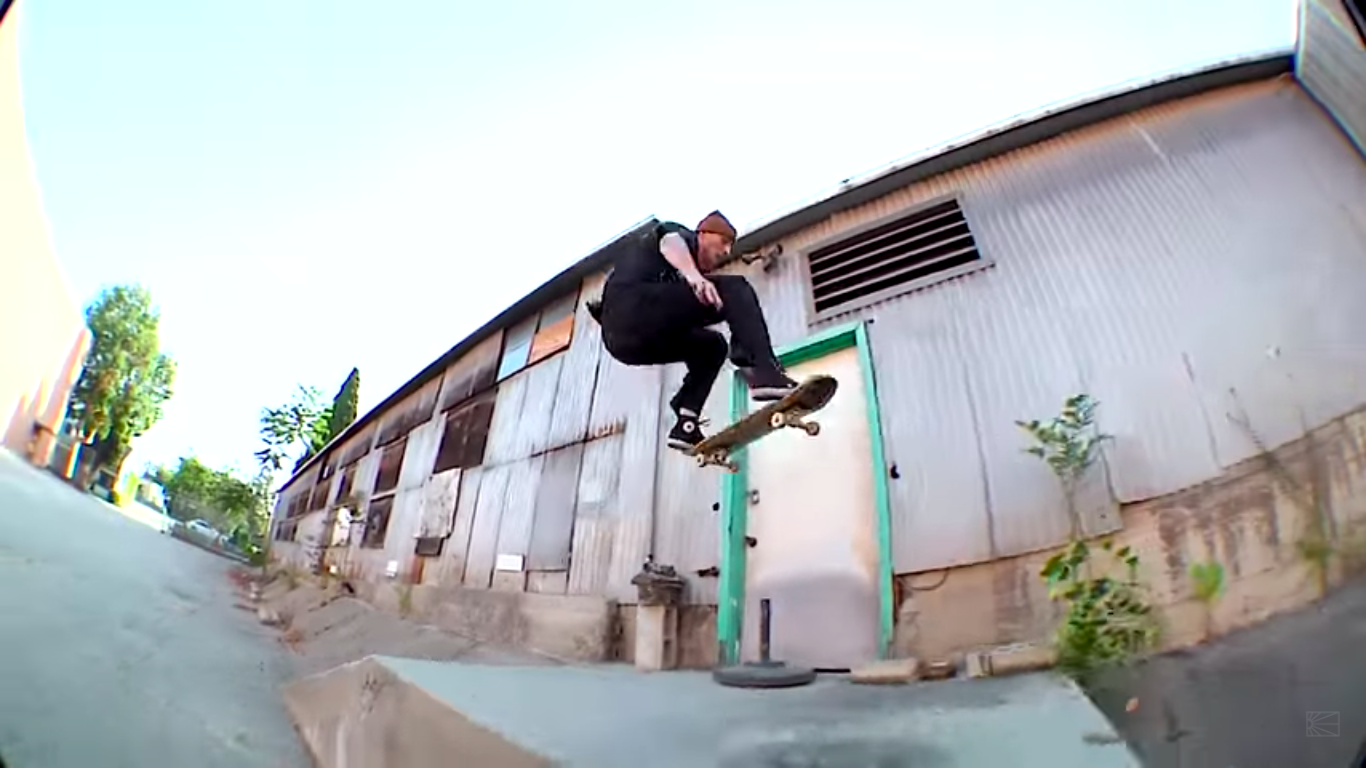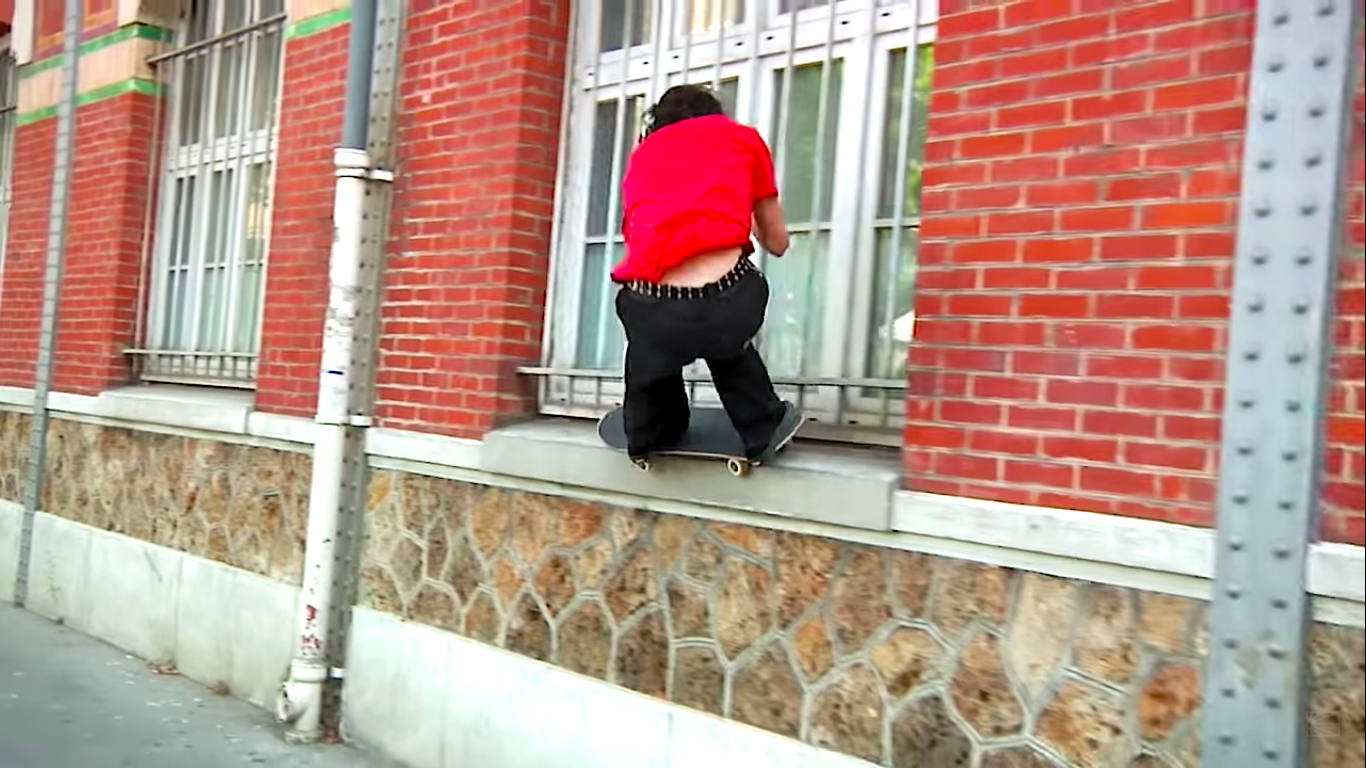Rassvet in Exile: On I Missed You
Russians in exile. Russians in Mexico. The conceit for Rassvet’s most recent video, I Missed You, invariably calls to mind Frida, the 2002 biopic starring Salma Hayek as the eponymous artist, Frida Kahlo. Kahlo was part of a group of socialist artists in Mexico City who were partly responsible for helping Communist revolutionary, Leon Trotsky find asylum in their city in 1937. In the film, Trotsky and his wife take refuge with Kahlo and her estranged husband, the muralist Diego Rivera at Kahlo’s family home, and their conversations pose the film’s most salient questions about the artist’s role in society. Can art be political? Is emotion or ideology more persuasive? Are people rational beings? How can the personal become political? Should the artist subsume her intentions to the project of the nation, the revolution, the worker? Trotsky and Kahlo have an affair, a romance Trotsky soon sacrifices to protect his own marriage. As the couple departs for less secure accommodations, the notoriously unfaithful Rivera confronts Kahlo, asking her why she would put the worker’s revolution at risk. She spits back: “Because we wanted to.”
I Missed You takes place within a similarly exiled state, in which national identities are brokered under foreign circumstances. Here, though, an opening animation reminds us that the quest is as much a matter of asylum as of finding like-minded people, when it longingly asks, “Where my friends at / Where has 2020 been?” Rassvet is a Russian company and its founder, Tolya Titaev has stated that “[o]ne of my main goals was to make sure that if someone thinks about skateboarding in Russia, they immediately think about us.” He is also the proprietor of Moscow’s Oktyabr Skateshop. Many of the company’s recent videos have granted outsiders a canny perspective on the Russian scene. To say that it feels Russian is a bit weak. More, amidst the cutty spots and granite plazas of Moscow, and the Soviet-era post-industrial ruins that still haunt the country’s urban fringes, a strong sensibility comes through. It’s cocky, declarative, prone to grand gestures, and yet, everything comes across with the elegant strategy of a grand plan. Watching the company’s videos has the same vibe as discovering that one of your smartest, most artistic friends spent a year in jail for beating someone up (as once happened with me and my brilliant painter friend, when he whipped out his old prison ID card at the bar). The experience is thrilling at first, the shock giving way to a more conspiratorial conversation. But, as with Rassvet’s output, the confession leaves you wondering who this person really is, and what kind of past lurks behind a person’s persona.
The same sense of gritty suspicion, of constantly having to prove your bona fides comes through in Rassvet’s video travelogue. Filmed primarily in Mexico City, Paris, and Los Angeles, the video positions each of these international capitals as the locus of operations for the company’s international team—places where, owing to various border disputes and dislocations, it became possible for a creative community to form, however ad hoc the circumstances. Mexico City held a special place as a wayfaring station for many during the pandemic. It was the backdoor for Europeans and other world travelers to reenter the United States, so long as they holed up in the Mexican capital long enough to pass quarantine, and thereby cross a more neutral border.
I Missed You takes place within a similarly exiled state, in which national identities are brokered under foreign circumstances. Here, though, an opening animation reminds us that the quest is as much a matter of asylum as of finding like-minded people, when it longingly asks, “Where my friends at / Where has 2020 been?” Rassvet is a Russian company and its founder, Tolya Titaev has stated that “[o]ne of my main goals was to make sure that if someone thinks about skateboarding in Russia, they immediately think about us.” He is also the proprietor of Moscow’s Oktyabr Skateshop. Many of the company’s recent videos have granted outsiders a canny perspective on the Russian scene. To say that it feels Russian is a bit weak. More, amidst the cutty spots and granite plazas of Moscow, and the Soviet-era post-industrial ruins that still haunt the country’s urban fringes, a strong sensibility comes through. It’s cocky, declarative, prone to grand gestures, and yet, everything comes across with the elegant strategy of a grand plan. Watching the company’s videos has the same vibe as discovering that one of your smartest, most artistic friends spent a year in jail for beating someone up (as once happened with me and my brilliant painter friend, when he whipped out his old prison ID card at the bar). The experience is thrilling at first, the shock giving way to a more conspiratorial conversation. But, as with Rassvet’s output, the confession leaves you wondering who this person really is, and what kind of past lurks behind a person’s persona.
The same sense of gritty suspicion, of constantly having to prove your bona fides comes through in Rassvet’s video travelogue. Filmed primarily in Mexico City, Paris, and Los Angeles, the video positions each of these international capitals as the locus of operations for the company’s international team—places where, owing to various border disputes and dislocations, it became possible for a creative community to form, however ad hoc the circumstances. Mexico City held a special place as a wayfaring station for many during the pandemic. It was the backdoor for Europeans and other world travelers to reenter the United States, so long as they holed up in the Mexican capital long enough to pass quarantine, and thereby cross a more neutral border.
Hence, lots of skaters found themselves in a not unwelcome state of limbo, and the city became a meeting point for Rassvet’s internationally diverse team, gathering skaters based in the US and elsewhere. In many ways, the opening segment in particular recalls Ernest Hemingway’s The Sun Also Rises (1926): against the beautiful, beaux-arts architecture of the Mexican capital, characters with nowhere else to go tread the line between beauty and self-destruction, much the same way Hemingway depicts in his novel about the vagaries of the Lost Generation. Zurich’s anarchic Dada scene and the debaucherous years of Weimar Berlin also come to mind. A decadent setting that lends itself to the romanticization of an invisible pain, and a certain nihilism about the past in general.
“Bored as fuck,” reads a super that introduces the section, and indeed, there is a listlessness about this prologue, which underlies the entire video, but which is tempered by individual video parts later on. Here, however, is a group of skaters stretching their legs for the first time on foreign soil—no one on this team is actually Mexican. The spots all have an overgrown beauty about them, as if the city were lost to time. The moldering tilework and artisanal basin of an empty fountain offer the groundwork for Val Bauer’s noseslide popover, the skater folding effortlessly across the threshold as if to suggest the arch-like trajectory of water jet in this otherwise dried-out water feature. Void of people, as quarantines were still in effect, and filmed in some of the quieter areas of the city, the empty streets, with their gorgeous time-worn cobblestones make Mexico City look like the European capital time forgot. Much like the novels of the Lost Generation, the peaceful timelessness of such urban limbo has its stakes, even if they lie on the fringes of ones memory, or the events they refer to are presently taking place abroad. Indeed, from the start, the video reminds us about the war going on elsewhere, its very first image offering solidarity with the afflicted: “NO TO THE RUSSIAN INVASION / WE STAND WITH UKRAINE”.
By the time Rassvet reaches Los Angeles, angst has percolated to the surface. This crew bares all the telltales of the creative set: the heavy denim and the thick cotton duck of workwear, Chuck Taylors, and really baggy pants. Differentiating themselves is a more collaged sensibility, a whiff of Balenciagia’s recent end-times aesthetic. I may not know all the reference points, but I do know that religious icons and Bauhaus t-shirts are as prevalent as wallies and pole jams. The soundtrack, too, shifts to the enveloping fuzz of Shoegaze and Sonic Youth tracks that feature Kim Gordon’s moaning vocals. A doleful mood. Glancing. Discordant. Skating seems more burdensome, now. Bauer takes these scrappy, economical tricks to gas station parking lots, cast in a stark neon light. Cambryan Sedlick, as if hallucinating a better spot, does a backside ollie on a grass covered hillside.
“Bored as fuck,” reads a super that introduces the section, and indeed, there is a listlessness about this prologue, which underlies the entire video, but which is tempered by individual video parts later on. Here, however, is a group of skaters stretching their legs for the first time on foreign soil—no one on this team is actually Mexican. The spots all have an overgrown beauty about them, as if the city were lost to time. The moldering tilework and artisanal basin of an empty fountain offer the groundwork for Val Bauer’s noseslide popover, the skater folding effortlessly across the threshold as if to suggest the arch-like trajectory of water jet in this otherwise dried-out water feature. Void of people, as quarantines were still in effect, and filmed in some of the quieter areas of the city, the empty streets, with their gorgeous time-worn cobblestones make Mexico City look like the European capital time forgot. Much like the novels of the Lost Generation, the peaceful timelessness of such urban limbo has its stakes, even if they lie on the fringes of ones memory, or the events they refer to are presently taking place abroad. Indeed, from the start, the video reminds us about the war going on elsewhere, its very first image offering solidarity with the afflicted: “NO TO THE RUSSIAN INVASION / WE STAND WITH UKRAINE”.
By the time Rassvet reaches Los Angeles, angst has percolated to the surface. This crew bares all the telltales of the creative set: the heavy denim and the thick cotton duck of workwear, Chuck Taylors, and really baggy pants. Differentiating themselves is a more collaged sensibility, a whiff of Balenciagia’s recent end-times aesthetic. I may not know all the reference points, but I do know that religious icons and Bauhaus t-shirts are as prevalent as wallies and pole jams. The soundtrack, too, shifts to the enveloping fuzz of Shoegaze and Sonic Youth tracks that feature Kim Gordon’s moaning vocals. A doleful mood. Glancing. Discordant. Skating seems more burdensome, now. Bauer takes these scrappy, economical tricks to gas station parking lots, cast in a stark neon light. Cambryan Sedlick, as if hallucinating a better spot, does a backside ollie on a grass covered hillside.
Though skaters gravitate to society’s edges, and tend to drift unmoored from a specific place, existing on the fringes can destabilize your sense of self, and engender reactionary ideals. Sedlick skates someone’s home, a gesture that comes across as somewhat hostile, throwing into question whether skating is a coherent ideology, or simply entitled and reactive to circumstances. Is skating just a kind of nihilism that admits too well to the world’s corruption, and holds up self-indulgence as the last meaningful ideal? It’s a tragic scene, and after the homeowners hastily dispose of the plywood Sedlick used to reinforce the grippy surface of the roof, mother, father, and child dispatch the crew with a pair of middle fingers. (Perhaps because Paris has a longer history of welcoming artist exiles, a friendlier passerby later wags her tongue at the camera, her lips pursed into a smile).
Cameos abound, collecting these lost souls under the shadow of internationalism. We get a few clips from the Portuguese native Remy Taveira, a skater who, like so many of his countrymen, came of age in Paris, seeking better opportunities in the French capital. Accolades and overheards come to us in a variety of languages: Spanish, French, Russian, Portuguese, English, the international language of skater gibberish, and the expression “Let’s go!” In spite of this eclectic vision of skateboarding, one of the narratives that I personally enjoyed in the video is that of the Midwestern idler making inroads with such an international crew. Patrick Franklin is from Illinois, and was, for a time, synonymous with the Midwestern scene centered around Chicago. But his beautifully stylized skating, which he honed in weed-ridden parking lots, abandoned malls, and other post-industrial wastelands now finds resonance in the streets of Paris, as if, like a character out of Hemingway, his cornfed ennui has made intimate bedfellows with a broader, more urbane malaise. His tricks do belong to these stone-lined streets. His slappies and various combos recall the innovations made by Kevin Rodrigues and the Blobys in the decade past, a romantic version of skating that found bravura in the gutters of Paris, content with a curb so long as it was surrounded by a beautiful setting. Everyone seems to shave themselves bald, and have snake tattoos on the backs of their heads.
Sometimes, as I often wonder about my American friends in Berlin, the exile is not to be trusted. What are they running from? Why haven’t they learned the language yet? If it was so bad at home, why didn’t they stick around to fight, to work to make it better? Is the exile actually extremely bourgeois, self-interested, privileged to leave? The unplaceable mid-Atlantic accent—a combination of American and British intonations, garnished with ESL expressions—that issues from the throats of those expats on a permanent semester abroad would suggest some kind of pretentious put-on. Franklin, however, does not suffer fools about his position on the team. With his giant nerd glasses, complete with adjustable tether fastened tight to his head, he could not look more American. His choice of Chuck Taylors not only positions him as part of the avant-garde, but also within the Sandlot-like image of youthful Americana. In taking his skateboarding abroad, practicing his work in a context that does not make the same assumptions about who he is or where he is from, he is able to speak more generally about his American perspective. In the US, he’s just another suburbanite from nowheresville. In Paris, he speaks the international language of skateboarding. There is a sense of liberation about his skating, too. He’s more able to dedicate himself to his craft, proferring backside flips that are as crisp and taught as any of Hemingway’s finest sentences. And while he partakes of the image of the guileless, innocent American, he pairs it with something more ruminative and oblique. He approaches curb cuts not simply as kicker ramps, but rather as lyrical rejoinders. Childlike tricks such as the fingerflip stage a thoroughly adult psychodrama when Franklin turns one off a curb. And though he might huck his ender like a true American, the sidelong gesture of the frontside shuvit dangles with the leering, surreal, Lynchian clarity of a knife.
Cameos abound, collecting these lost souls under the shadow of internationalism. We get a few clips from the Portuguese native Remy Taveira, a skater who, like so many of his countrymen, came of age in Paris, seeking better opportunities in the French capital. Accolades and overheards come to us in a variety of languages: Spanish, French, Russian, Portuguese, English, the international language of skater gibberish, and the expression “Let’s go!” In spite of this eclectic vision of skateboarding, one of the narratives that I personally enjoyed in the video is that of the Midwestern idler making inroads with such an international crew. Patrick Franklin is from Illinois, and was, for a time, synonymous with the Midwestern scene centered around Chicago. But his beautifully stylized skating, which he honed in weed-ridden parking lots, abandoned malls, and other post-industrial wastelands now finds resonance in the streets of Paris, as if, like a character out of Hemingway, his cornfed ennui has made intimate bedfellows with a broader, more urbane malaise. His tricks do belong to these stone-lined streets. His slappies and various combos recall the innovations made by Kevin Rodrigues and the Blobys in the decade past, a romantic version of skating that found bravura in the gutters of Paris, content with a curb so long as it was surrounded by a beautiful setting. Everyone seems to shave themselves bald, and have snake tattoos on the backs of their heads.
Sometimes, as I often wonder about my American friends in Berlin, the exile is not to be trusted. What are they running from? Why haven’t they learned the language yet? If it was so bad at home, why didn’t they stick around to fight, to work to make it better? Is the exile actually extremely bourgeois, self-interested, privileged to leave? The unplaceable mid-Atlantic accent—a combination of American and British intonations, garnished with ESL expressions—that issues from the throats of those expats on a permanent semester abroad would suggest some kind of pretentious put-on. Franklin, however, does not suffer fools about his position on the team. With his giant nerd glasses, complete with adjustable tether fastened tight to his head, he could not look more American. His choice of Chuck Taylors not only positions him as part of the avant-garde, but also within the Sandlot-like image of youthful Americana. In taking his skateboarding abroad, practicing his work in a context that does not make the same assumptions about who he is or where he is from, he is able to speak more generally about his American perspective. In the US, he’s just another suburbanite from nowheresville. In Paris, he speaks the international language of skateboarding. There is a sense of liberation about his skating, too. He’s more able to dedicate himself to his craft, proferring backside flips that are as crisp and taught as any of Hemingway’s finest sentences. And while he partakes of the image of the guileless, innocent American, he pairs it with something more ruminative and oblique. He approaches curb cuts not simply as kicker ramps, but rather as lyrical rejoinders. Childlike tricks such as the fingerflip stage a thoroughly adult psychodrama when Franklin turns one off a curb. And though he might huck his ender like a true American, the sidelong gesture of the frontside shuvit dangles with the leering, surreal, Lynchian clarity of a knife.
Born too late, millennials will always feel as though they missed a city’s boom years of artistic creativity and international cultural melding. Berlin was gone by the late 2000s, when they would have been graduating from college. Cheep rent in London or Paris is gone. Even second cities like Portland felt more like a Gen X paradise, than a millennial mecca. And don’t even get me started on New York, though I hear Tblisi is the next Bushwick. Or maybe Lisbon….It’s almost a defining characteristic of this generation that they missed the boat. But much like Trotsky and Kahlo’s interactions, I Missed You speaks to more universal human conditions. Exiled at home and abroad, the experience of Russian millennials mirrors that of American millennials, hence a certain uncanny echo between Rassvet and the scrappy, unmonumental ethos of New York, Chicago, Philadelphia, Miami, Detroit, and even aspects of Los Angeles. They, too, inherited a country in decline, with money and resources greedily hoarded by older generations, labor protections gutted, and incomes, on average, less than what their parents enjoyed. Gone is governmental support in general, be it subsidized education and affordable rent in the United States, or the more pervasive assistance provided by Soviet state.
Overall, the ornate symbolism of Sedlick’s skating steals the show. Grabbing melon on the blind rotation of a frontside half cab, he clears a massive gap in one grand flap of his limbs, a menacing gesture that bares strong resemblance to a vampire draping open his cape. But it’s his video-ending clip that sums up the situation of the Rassvet team best. Thrusting himself out of a curb cut, Sedlick clears an impossibly high barrier, tweaking himself into a backside shifty. In this awkward position, he crashes into place on the curb, his wheels squeal against the time-worn pavement and flagstones, before he exits the trick fakie. With the camera continuing to move away from him, filming backwards but moving forwards, all movement appears to reverse direction. Time seems to stop, or lose any sense of momentum all together. Nearly impossible to reconcile, it’s as if the frame is moving, and the material world has crystalized into a standstill. Similarly, that Titaev has seen to an entrepreneurial self-sufficiency, building out his own commercial infrastructure that supports a growing skate scene is not only impressive, laudable, and the epitome of service in the skate world, it also suggests the underlying ambivalence required to exist amidst the global cultural stasis of the neoliberal world. Strangers at home and abroad, I Missed You presents history’s orphans who have been forced to figure things out on their own. •••
Overall, the ornate symbolism of Sedlick’s skating steals the show. Grabbing melon on the blind rotation of a frontside half cab, he clears a massive gap in one grand flap of his limbs, a menacing gesture that bares strong resemblance to a vampire draping open his cape. But it’s his video-ending clip that sums up the situation of the Rassvet team best. Thrusting himself out of a curb cut, Sedlick clears an impossibly high barrier, tweaking himself into a backside shifty. In this awkward position, he crashes into place on the curb, his wheels squeal against the time-worn pavement and flagstones, before he exits the trick fakie. With the camera continuing to move away from him, filming backwards but moving forwards, all movement appears to reverse direction. Time seems to stop, or lose any sense of momentum all together. Nearly impossible to reconcile, it’s as if the frame is moving, and the material world has crystalized into a standstill. Similarly, that Titaev has seen to an entrepreneurial self-sufficiency, building out his own commercial infrastructure that supports a growing skate scene is not only impressive, laudable, and the epitome of service in the skate world, it also suggests the underlying ambivalence required to exist amidst the global cultural stasis of the neoliberal world. Strangers at home and abroad, I Missed You presents history’s orphans who have been forced to figure things out on their own. •••



